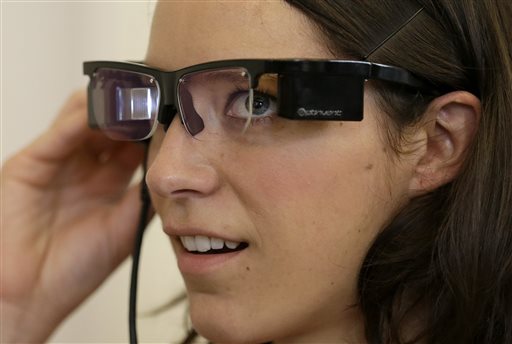Boomers Reject Wearable Technology

As technology creeps more into our daily lives,many baby boomers are starting to push back on the notion of have a device strapped to our bodies. In a newly released survey from Cornerstone OnDemand, 42 percent of workers said they would not be willing to strap on wearable tech for their jobs, with older and more traditional employees more reluctant than their counterparts.
Ironically, humans have been wearing technology for centuries, from strapped-on compasses to pocket watches. The current surging industry is centered in the Silicon Valley and San Francisco Bay area, where mostly smaller startups design their products locally and have them manufactured in Asia to take advantage of cheap labor.
“Everyone agrees the race is just beginning, and I think we’re going to see some very, very big leaps in just the next year,” said tech entrepreneur Manish Chandra at a wearable technology conference and fashion show in San Francisco Monday that was buzzing with hundreds of developers, engineers and designers.
Wearable technologies have long been a sideshow to mainstream laptop and smartphones, but this year Google’s glasses and rumors of Apple’s iWatch are popularizing the field. Analysts forecast swift growth. Last year the market for wearable technology — encompassing everything from hearing aids to wristband pedometers — totaled almost $9 billion. That should climb to $30 billion by 2018, said analyst Shane Walker at IHS Global Insights.
As wearable technologies proliferate, humans will need to adapt, said Georgia Tech professor Thad Starner. He advises Google on its glasses, which are lightweight frames equipped with a hidden camera and tiny display that responds to voice commands. Starner has worn his for several years.
“We’re talking about paradigm changing devices,” said Starner. “Capabilities that people haven’t thought of before.”
He said that, unlike computers and tablets that people engage with, wearable computers are designed to be in the background, secondary to the wearer’s attention.
“It seems like a paradox, but when you pull the technology closer to your body, there’s a seamless interaction, it’s more an extension of yourself,” he said.
But there are sure to be cultural and social issues. Google Glass — and some emerging competitors — have raised concerns of people who don’t want to be surreptitiously videoed or photographed. And what about interacting?
“Do you really want a touch screen on the front of your t-shirt? Is it socially acceptable to be poked all over your body for somebody to use your wearable computer?” asked Geneviève Dion, who directs a fashion and technology lab at Drexel University.
The answer, for some, is no.
“It almost makes you think everyone is going to turn into a cyborg,” he said, referring to a fictional, prosthetic-laden high tech comic book superhero.
And will they?
“When you look at the world and everything people are doing?” said Blasi, pausing for a moment. “I think the answer to that is yes.”
Category: Blog



































